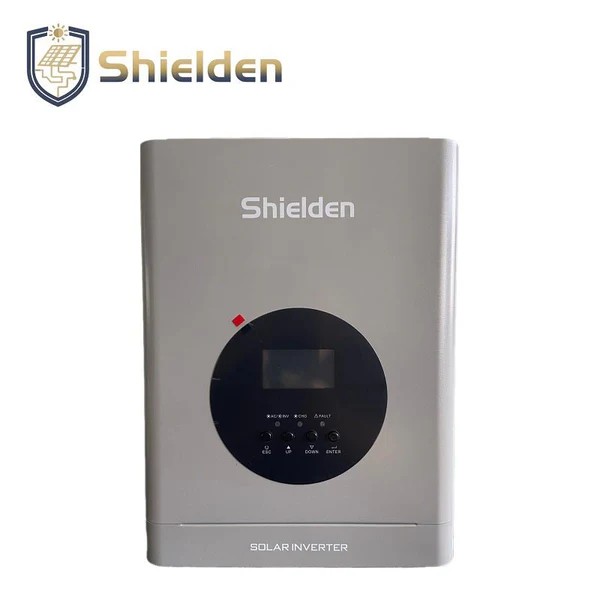
As the world continues to seek cleaner and more dependable sources of electricity, the rise of Off-Grid Solar Inverters has completely changed how we think about energy. These systems offer freedom from unstable national grids and high electricity bills, giving homeowners control over their own energy generation.
Unlike traditional systems that rely on centralized networks, off-grid setups allow users to produce, store, and consume power directly from sunlight. This approach not only promotes sustainability but also ensures peace of mind during outages and rising energy costs.
The Concept Behind Off-Grid Solar Systems
At the heart of an off-grid setup lies the solar inverter. Its primary function is to convert the DC power generated by solar panels into AC electricity, which is what most household appliances use.
A 3000w off grid solar inverter is a powerful yet practical example of this technology. Designed to operate independently, it enables homes and small businesses to access electricity without any grid connection. Whether you’re living in a rural area or simply want to reduce your dependence on external energy suppliers, off-grid solar inverters make that possible.
In essence, these systems combine solar panels, batteries, and an inverter into a smart ecosystem that functions entirely on renewable energy. During the day, solar panels generate electricity, while excess energy is stored in batteries for use at night or during cloudy weather.
Why Homeowners Are Shifting Toward Off-Grid Energy
Energy freedom is becoming an important priority for many households. People want to cut ties with unpredictable grids and high monthly bills. Off-Grid Solar Inverters provide the perfect solution by offering self-sufficiency and long-term stability.
The shift is also driven by environmental concerns. Solar energy eliminates the need for fossil fuels, significantly reducing greenhouse gas emissions. In countries where grid electricity is unreliable or unavailable, off-grid solutions empower people to enjoy modern conveniences without compromising sustainability.
A typical 3000w off grid solar inverter provides enough power to run daily essentials like lighting, refrigerators, and entertainment systems. It’s the kind of device that fits both residential and commercial needs, giving flexibility to users who value independence and efficiency.
How Off-Grid Solar Inverters Work
The operation of these systems is simple but highly effective. Solar panels absorb sunlight and produce DC electricity. The inverter then converts this DC current into AC, making it suitable for everyday appliances. Any extra energy goes into battery storage for later use.
Off-grid inverters are intelligent devices that automatically balance supply and demand. They prevent overcharging, regulate current, and protect your home from power fluctuations. A model like the 3000W variant ensures stable output even during sudden load changes, keeping your devices safe and running smoothly.
This technology also includes built-in displays or monitoring systems, allowing homeowners to track energy usage, battery health, and solar performance in real time.
The Major Benefits of Off-Grid Solar Inverters
- Energy Independence – You produce your own power without relying on a utility company.
- Consistent Supply – Power continues even during blackouts, storms, or grid failures.
- Long-Term Savings – Though setup costs exist, the system quickly pays off with years of free energy.
- Sustainability – Solar power is renewable, clean, and leaves no carbon residue.
- Flexible Installation – Works anywhere—homes, farms, shops, or cabins—without needing grid access.
A 3000w off grid solar inverter particularly shines in medium-sized setups, where energy needs are moderate but reliability is critical. It provides the perfect balance between capacity and affordability.
Choosing Between Off-Grid and On-Grid
Many people often confuse off-grid with on-grid solar systems. While both use sunlight as an energy source, their operation differs significantly. On-grid systems remain connected to the national grid, sending excess electricity back to it and drawing power when solar energy is insufficient.
On the other hand, off-grid systems operate independently. They depend on batteries to store electricity and supply power continuously, even when sunlight isn’t available. For those living in regions with frequent outages or limited infrastructure, Off-Grid Solar Inverters are a far better solution.
In fact, a 3000w off grid solar inverter can even be part of a hybrid setup, allowing users to switch between battery power and other backup sources as needed.
Real-Life Impact of Off-Grid Systems
Across the world, off-grid energy systems are transforming lives. In remote villages, they power schools and clinics. In farming areas, they run irrigation systems and cold storage facilities. In urban homes, they serve as reliable backup solutions during load shedding.
The adaptability of these systems means anyone—from small homeowners to large property owners—can benefit. Beyond providing power, they represent a movement toward responsible, self-sustaining living.
With governments and organizations supporting renewable energy initiatives, adopting Off-Grid Solar Inverters is not only a practical choice but also a socially responsible one.
How to Select the Right 3000W Inverter
Choosing an inverter depends on your total load requirement and battery capacity. A 3000W model is ideal for homes that use up to 2–3 kilowatts of energy during peak hours.
Look for inverters with multiple protection features such as short-circuit prevention, temperature control, and overload management. An efficient system should also have pure sine wave output for better compatibility with sensitive devices like laptops and refrigerators.
The 3000w off grid solar inverter category provides these advantages, offering high performance, smooth operation, and minimal maintenance needs.
The Role of Technology in the Future of Solar Energy
Technological advancements continue to make solar systems smarter and more efficient. Modern off-grid inverters come with Wi-Fi monitoring, AI-based power optimization, and improved energy conversion rates. These innovations help users monitor their system performance from anywhere and ensure maximum return on investment.
As battery technologies improve—especially with lithium-ion and sodium-based storage—the potential of Off-Grid Solar Inverters will only grow. This evolution points to a future where every household can become its own mini power station.
Final Thoughts
Off-grid solar power isn’t just about saving money—it’s about freedom, control, and responsibility. With Off-Grid Solar Inverters, people can generate clean, sustainable energy while avoiding the uncertainty of traditional grids.
Models like the 3000w off grid solar inverter demonstrate how powerful and user-friendly this technology has become. Whether you’re living off the grid or simply preparing for emergencies, these inverters ensure your lights never go out.


